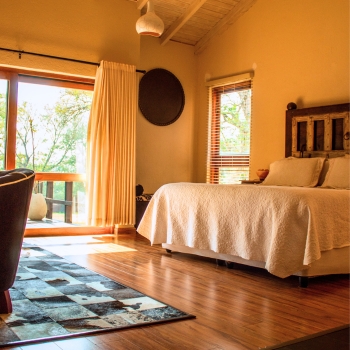AirBNB & Tax. Renting Your Home For Extra Income?

How to Rent Out Your Property and Stay ATO Compliant
Thinking of starting an Airbnb business at your home or investment property? It's crucial to be aware of the tax implications. Understanding these can help you set up your venture correctly and manage your finances effectively. Here are some key points to be aware of.
NSW properties need a STRA number.
If you own a short-term rental accommodation (STRA) property in New South Wales, you’ll need to register the property via the NSW Planning Portal before you advertise or offer it for short-term rental. You’ll be issued with an STRA property ID number, which must be displayed on the online property listing. Only residential accommodation such as houses, units and terraces need to be registered; caravans, tents and moveable dwellings do not.
You may need an ABN (Australian Business Number) or you may not.
You might not need an ABN to rent out your home on Airbnb if you're treating the income as residential rental income. However, you might need an ABN if you're running your Airbnb as a business, such as: Renting out an investment property and running your Airbnb through a company.
Income earned must be declare in your tax return.
Income earned from your Airbnb business must be declared in your tax return under the rental property schedule. All rental income, whether for short-term or long-term stays, needs to be reported to the Australian Taxation Office (ATO). The net profit from your Airbnb activity will be added to your taxable income and taxed at your personal marginal tax rate. Ensure all income and expenses are accurately recorded to avoid discrepancies during tax assessments.
Be aware of the deductions you can claim and keep records of all your expenses.
You are entitled to claim deductions for expenses incurred while operating your Airbnb business. These can be broken down into Airbnb-specific and regular rental property expenses. Make sure you keep a record of all your expenses.
Airbnb-specific expenses include:
Cleaning
Airbnb platform fees
Advertising
Regular rental property expenses include:
Advertising
Strata fees
Council rates
Depreciation
Mowing & Repairs
Insurance
Interest on loans
Water
Calculating Deductions
These expenses must be apportioned based on the percentage of time your property is rented out during the financial year. For example:
If council rates were $4000 and 50% of the house was rented for 30% of the year, your deduction would be $600 ($4,000 x 50% x 30%).
If only part of the house is leased, the deductible amount will also be adjusted by the percentage of space used for rental purposes.
Capital Gains Tax (CGT) Considerations
If you move out of your home and lease it on Airbnb for an extended period, the 6-year absence rule may apply. This means the sale of your main residence might be exempt from CGT for up to six years of absence.
However, if you only rent part of your home while still living there, you may not qualify for the full CGT exemption, as you are not technically considered absent from the property.
Remember
Keep detailed records of all income and expenses. The ATO requires you to keep all records for five years.
Ensure you are compliant with ATO requirements.
Understand how partial leasing affects your tax payment and tax deductions.
Fincare Accounting can help you stay informed and organised so you can run your Airbnb business smoothly while managing your tax obligations effectively. Contact us today.
